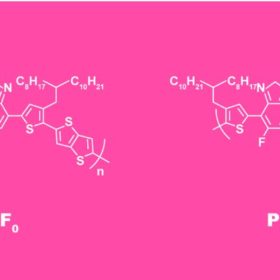Russian scientists send organic PV into orbit
Scientists at Russia’s Skoltech Institute of Science and Technology have demonstrated a solar cell with record high radiation stability. The scientists say the cells, based on an organic polymer compound, could be a strong candidate to meet the requirements of powering satellites in lower earth orbit.
Scientists make an exciton organic PV discovery
Researchers at the U.S. Department of Energy’s Lawrence Berkeley Laboratory have found a mechanism for creating a charge in molecular materials. The findings, say the team, could lead to new approaches in the design of PV devices.
Scientists develop technique to boost organic solar cell efficiency
An international team of scientists working with polymer-fullerene solar cells has developed a process of fluorination, which demonstrated a significant boost in cell efficiency. According to Moscow Institute of Physics and Technology, the discovery could assist the development of new thin film solar materials.
Researchers create solar cell and inverter in single device
Researchers from Spain based organization nanoGUNE have developed a solar cell which, through the use of magnetic electrodes, is able to serve as its own inverter.




